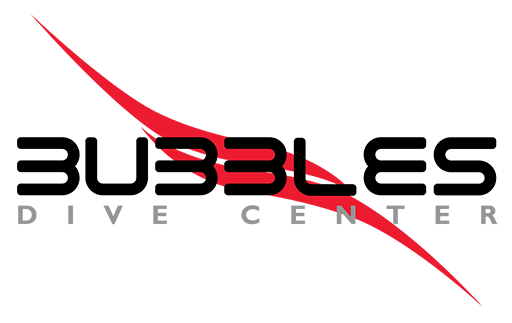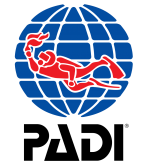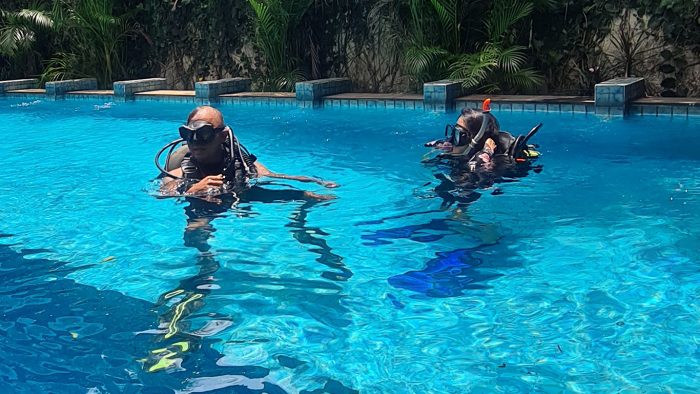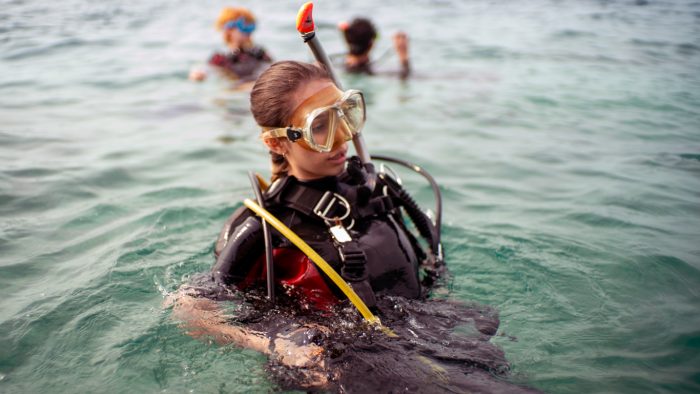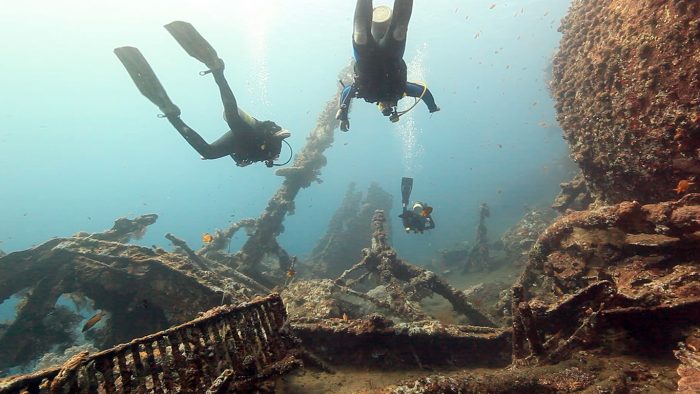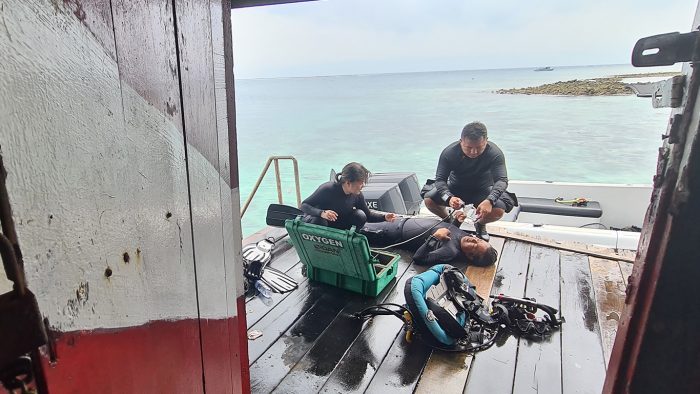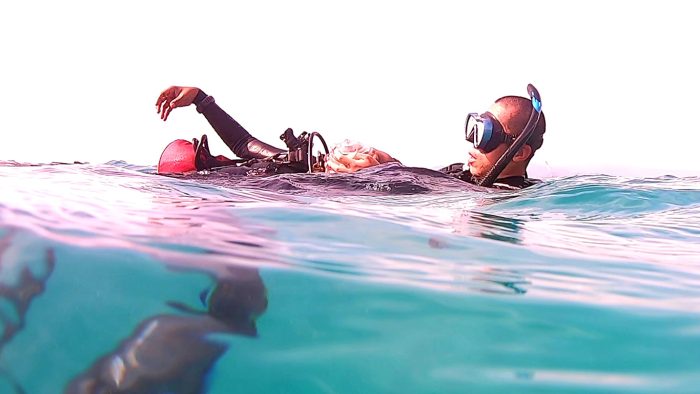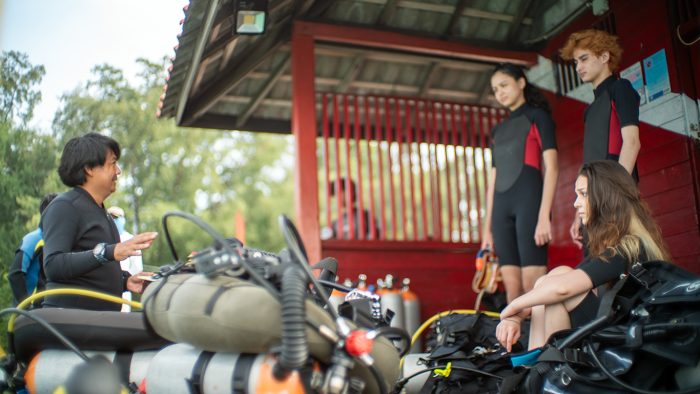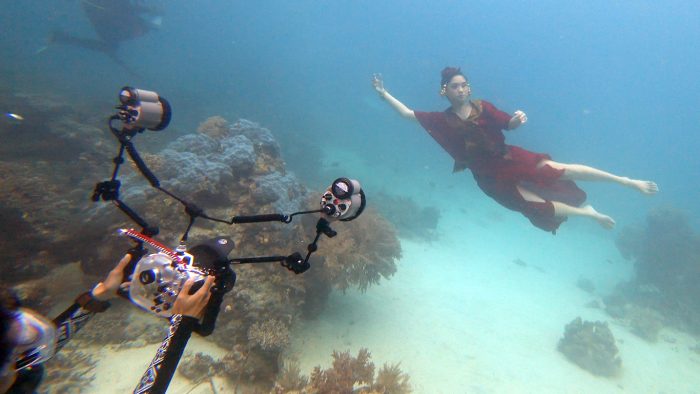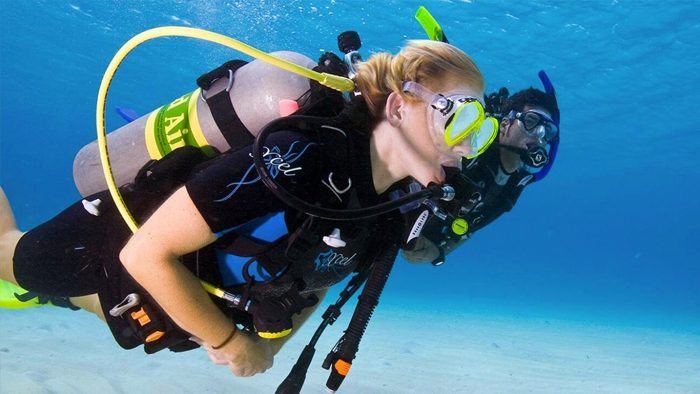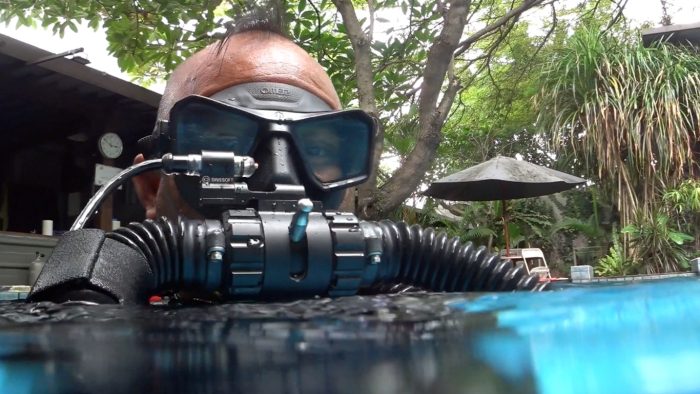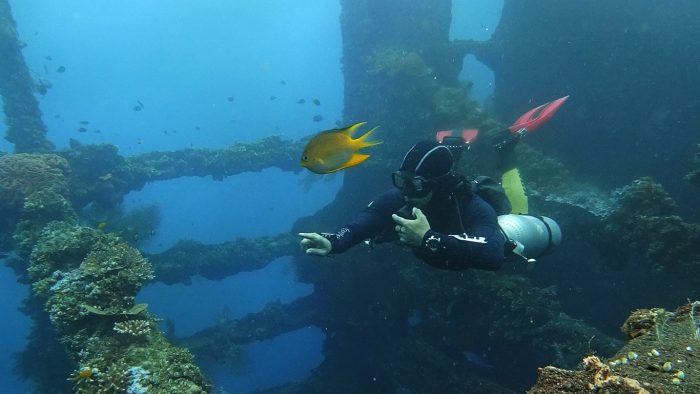Scuba diving is swimming underwater using SCUBA – Self Contained Underwater Breathing Apparatus. Using a cylinder of compressed gas to breathe (usually air, but sometimes other gases), scuba divers can stay underwater much longer than would be possible by just holding their breath – for hours or even days!
With the assistance of equipment such as scuba masks, breathing regulators, buoyancy devices, fins, and gauges scuba divers can explore the underwater world. Modern scuba diving is very safe and easy to learn. All basic skills can be learned in as little as three days.
